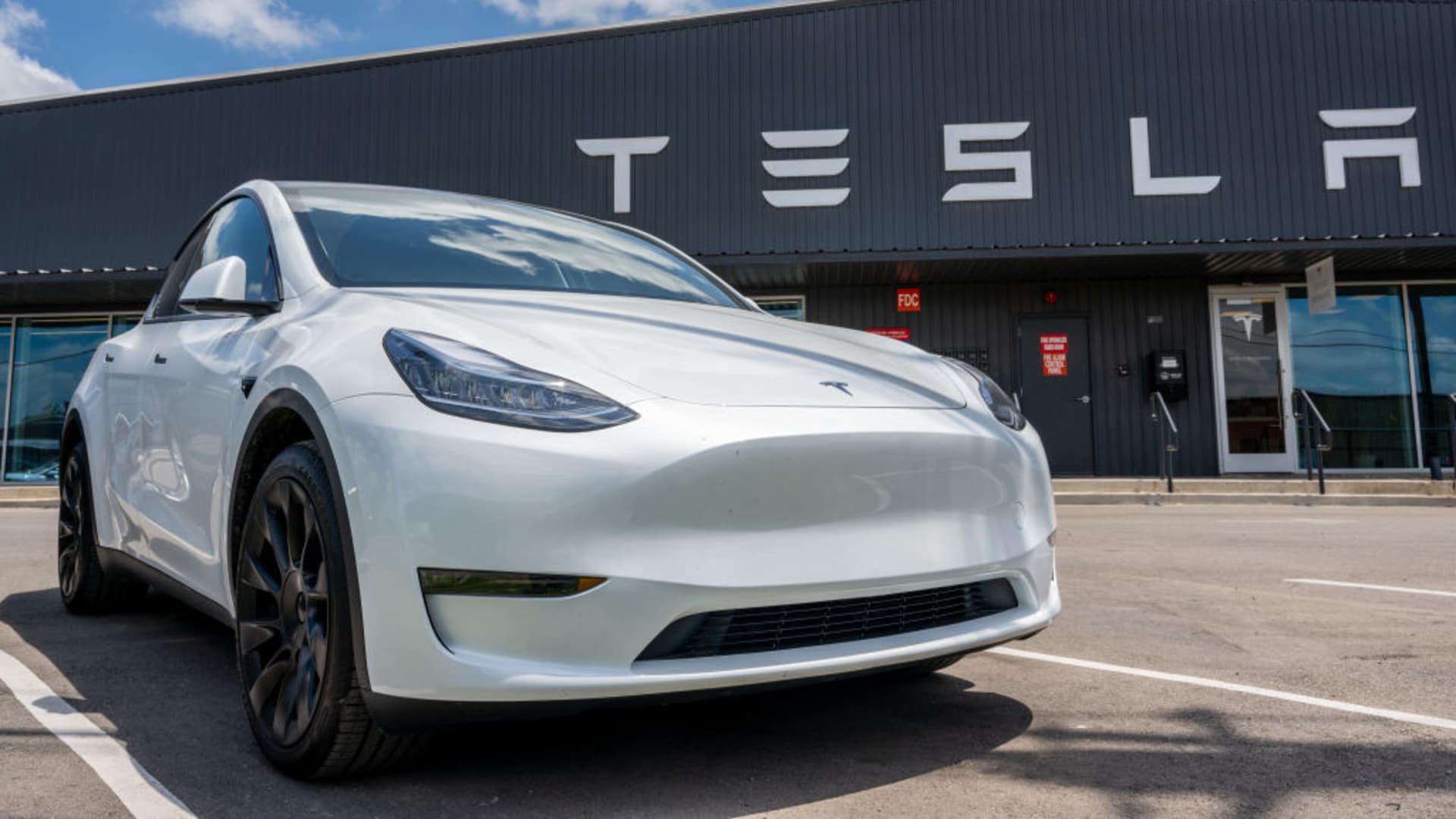A Tesla Model Y is seen on a Tesla car lot on May 31, 2023 in Austin, Texas. Tesla’s Model Y has become the world’s best selling car in the first quarter of 2023.
Brandon Bell | Getty Images
DETROIT – Legacy automakers continue to promise big increases in production and sales of battery-electric vehicles, but their efforts so far have done little to change the highly watched, emerging market.
Despite notable upticks in sales compared with a year ago, industry leader Tesla remains the top EV seller and has grown its lead over legacy automakers. It is roughly 300,000 units ahead of its closest competitors Hyundai Motor and General Motors through the first half of this year, according to Motor Intelligence. That compares with a roughly 225,000 gap in the first half of 2022.
The auto data firm reports that Tesla, which does not release sales by region, is estimated to have sold 336,892 vehicles to retail and fleet buyers in the U.S. during the first half of the year, a 30% increase from a year earlier.
Meanwhile, Hyundai — including the Kia brand that’s owned by the same parent company — increased its EV sales by roughly 11% during that time to 38,457 units. GM, which was second in EV sales through the first quarter, more than quadrupled electric car and truck sales to 36,322 units through June compared with a year earlier. And Volkswagen more than doubled EV sales to 26,538 units sold through June.
Ford Motor, which was second in EV sales last year behind Tesla, rounded out the top five spots with sales of 25,709 vehicles through June, according to Motor Intelligence. Ford’s EV sales were only up 12% compared with a year earlier, as the automaker took downtime to retool some plants such as a Mexican facility that produces its electric Mustang Mach-E crossover.
“Our EV sales continue to grow. Improved Mustang Mach-E inventory flow began to hit at the end of Q2 following the retooling of our plant earlier this year, which helped Mustang Mach-E sales climb 110% in June,” Andrew Frick, Ford vice president of sales, distribution and trucks, said Thursday in a sales release.
Tesla sales
Tesla’s 30% year-over-year sales growth during the first half of the year was fueled by production at a new plant in Texas coming online and ramping up. However, that hasn’t been enough to keep up with the EV market’s overall growth.
Tesla’s market share of U.S. EV sales dropped nearly 10 percentage points from a year ago to represent 60% of electric vehicles domestically sold, according to the data from Motor Intelligence.
Tesla’s decline in market share comes as more competitors enter the field, resulting in overall market growth. EV sales in the U.S. increased roughly 50% through June compared with the first half of 2022.
Legacy automakers, as well as newer companies such as Rivian Automotive, have been attempting to ramp up production of all-electric vehicles but many of their outputs remain small. Aside from the top slots, only five others have between 1% and 4% U.S. market share, according to Motor Intelligence. A host of others are under 1%.
Tesla’s global deliveries were more than 889,000 EVs during the first half of the year, including 466,140 vehicles during the second quarter. Its production is expected to continue to grow, as Tesla is aiming to produce at least 1.8 million electric vehicles in 2023.
CEO Elon Musk has told shareholders that the Texas factory should be the highest-volume production auto plant in the U.S. once it is fully ramped up.

